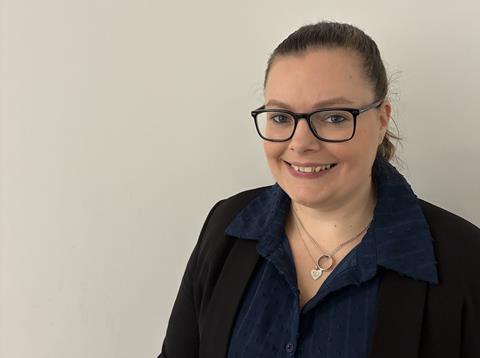In Julia Mazur and anor v Charles Russell Speechlys LLP [2025] EWHC 2341 (KB) the High Court provided important guidance on the role of non-qualified employees of law firms in the conduct of litigation. The decision could have profound consequences for certain sectors of the profession.

The key issue in the case was whether a non-qualified fee earner was entitled to carry out reserved legal activity. Debt recovery proceedings had been issued against the appellants and the particulars of claim were signed by Peter Middleton, head of commercial litigation at Goldsmith Bowers Solicitors, the firm instructed by Charles Russell Speechlys LLP to recover the debt. The appellants took issue with the fact that Middleton did not hold a current practising certificate. They stated he was not entitled to conduct litigation, being reserved legal activity as defined by section 12 Legal Services Act 2007, as he was not authorised or exempt. Only authorised or exempt persons can carry out reserved legal activity (section 13).
GBS argued Middleton was entitled to conduct litigation as a result of section 21(3) LSA. This defines regulated persons; namely authorised persons and non-authorised persons employed by an authorised person. They asserted Middleton was entitled to conduct reserved legal activity through the authorisation of GBS. This had also been confirmed by the SRA in its decision not to investigate GBS or Middleton.
Mr Justice Sheldon disagreed. He ruled that non-authorised persons are permitted only to support an authorised person (e.g. a solicitor with a practising certificate) in undertaking reserved legal activity. Undertaking reserved legal activity under the supervision of an authorised solicitor or as an employee of an authorised person (eg a law firm) was insufficient. Section 21(3) is concerned with the regulatory remit of the SRA, and it does not address who is authorised to carry out reserved legal activities under section 12.
Whether a person is supporting a solicitor to conduct litigation or is conducting litigation under supervision is a question of fact and degree. The key consideration is who is exercising professional judgment in respect of the litigation.
Section 21 LSA defines a 'regulated person'; that is different to an 'authorised person'. A regulated person is simply someone who comes within the remit of the regulator, and there is no doubt that employees of a law firm are also regulated by the SRA. Conversely, an authorised person has to undertake further examination and pass further character tests to prove they are a fit and proper person to be authorised to undertake reserved legal activity. That is why it is called reserved legal activity; it is reserved to those who are authorised. It is clearly in the public interest that such activity be reserved to authorised persons. Further, section 16 LSA makes it a criminal offence for an authorised employer to permit an unauthorised employee to carry out reserved legal activity. If there was no requirement for an employee to be authorised too, this provision would be nonsensical.
The SRA’s guidance also reflects this. In its Authorisation of Firm Rules, it makes clear that 'An authorised body may only carry on a reserved legal activity through a person who is entitled to do so'. The SRA is reviewing why it resiled from this position when originally deciding not to investigate GBS or Middleton, despite having input from its legal team. It is also reviewing whether incorrect advice has been provided to any other firms or individuals.
The decision would seem to throw a spanner in what appears to have been the status quo for many law firms for a considerable period of time. In particular, high volume litigation law firms and those working in legal aid often rely on the work of paralegals and other non-qualified fee earners to make their work commercially viable. Frequently, such employees have their own caseloads, supervised by a qualified solicitor. This judgment calls such practices into question.
Confusingly, in apparent stark contrast to the judgment is the guidance provided by the SRA in respect of what constitutes qualifying work experience for the purposes of qualifying through the SQE route. Someone undertaking the SQE is not an authorised person by virtue of their not yet being qualified. Therefore, in accordance with this judgment, they can only do work that supports a qualified fee earner conducting litigation. However, the guidance suggests that if they have carried out any work that provided legal services (making specific reference to section 12 LSA), that will count as qualifying work experience. That simply cannot be the case, and the SRA needs to make clear whether providing support to an authorised person carrying out reserved legal activities would count as qualifying work experience.
Law firms undertaking volume or legal aid work will have to consider how they make use of non-qualified fee earners. It is unclear how far a non-qualified fee earner’s support can go before it extends into conducting litigation. The Law Society and SRA, in their submissions to the High Court, set out examples of what work may or may not constitute supporting an authorised person to conduct litigation as opposed to conducting litigation. It would be useful for these examples to be formalised in guidance issued by the SRA, so law firms have more certainty.
Given the historical practices of high volume and legal aid firms (which has never been hidden from the SRA), retrospective regulatory action would seem both harsh and impractical given the potential scale of non-compliance. It will also be interesting to see what (if any) action the SRA decides to take in respect of any complaint it receives that a firm is using non-authorised staff to conduct litigation going forward – particularly if it publishes new guidance.
Vicky Lankester is an associate at Brett Wilson.































26 Readers' comments